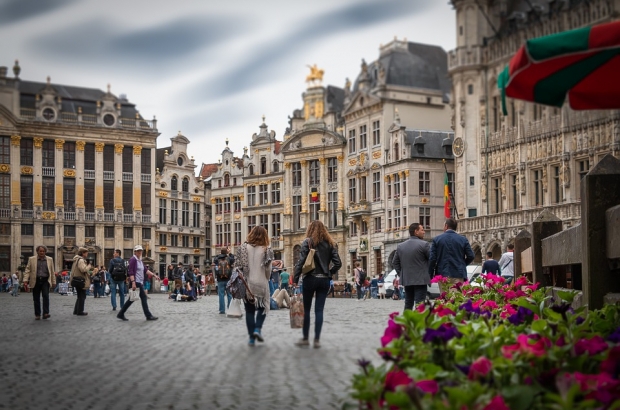- Daily & Weekly newsletters
- Buy & download The Bulletin
- Comment on our articles
Dirty and unsafe or idyllic centre of culture: Brussels' image polarised in Belgian press
Depictions of Brussels are highly polarised, according to a study from Vrije Universiteit Brussel (VUB), with some Belgian newspapers presenting the capital as an ideal place to live and others lambasting it as crime-ridden and filthy.
“Brussels’ overwhelmingly negative depiction in the press is a frequently mentioned but little researched factor in explaining its lack of appeal as a place to live,” the study claimed.
Researchers aimed to get to the bottom of this allegation that Belgian newspapers are contributing to people’s reported hate for the city, but what they found was that the opposite was also true.
“We found that the press by and large groups concepts into two diametrically opposed frames: the first corresponding to a phobian perception of Brussels that centres on the negative aspects of city life and the second to a cosmopolitan view of the capital that focuses on its vibrant nature and other inherent advantages,” the study reports.
“Furthermore, differences between newspapers in their portrayal of life in Brussels relate more so to their orientation (elite versus popular) rather than to their language (Dutch versus French).”
In other words, both French-speaking press and Dutch-language press portrayed Brussels as either a culturally-refined, idyllic capital or a dirty, unsafe city.
The study analysed more than 800 French- and Dutch-language newspaper articles about life in the capital.
“It has been argued that one of Brussels’ major problems is its relatively weak identity and personality and absence of a well-defined image,” the researchers wrote.
“Compared with other European metropolises such as Berlin, Paris and London, Brussels is said to lack presence on the world stage and has no easily identifiable narrative or backstory.”
The city itself has set out to fix this over the years with a series of campaigns focused on Brussels’ public image, to varying degrees of success.
But “given that Brussels’ city branding operations pay relatively little attention to the image of the city as a living environment,” researchers say, media narratives are likely to be the most important – albeit non-intentional – source of marketing.
The effect is felt by residents, who themselves are at odds with one another on whether they are living in a great city or a terrible one.
“On the one hand, there are those who see Brussels as a dirty, turbulent and unsafe city and who perceive multiculturalism in a negative way,” VUB professor Joke Bauwens said.
“On the other hand, we find people who see Brussels as a pleasant, green city and appreciate it as a place to live because of its multicultural character and diverse cultural offer.”



















